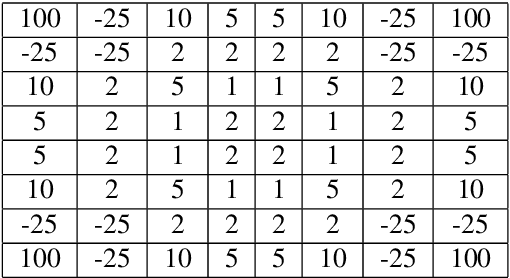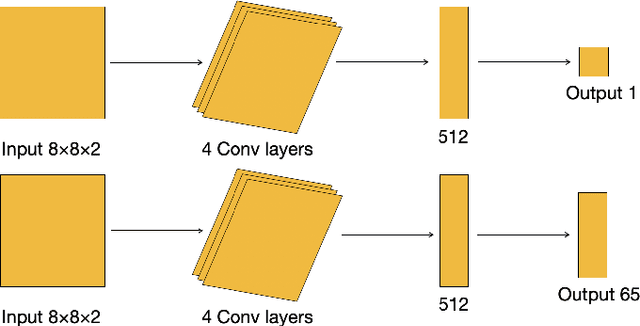Expert Q-learning: Deep Q-learning With State Values From Expert Examples
Paper and Code
Jun 29, 2021



We propose a novel algorithm named Expert Q-learning. Expert Q-learning was inspired by Dueling Q-learning and aimed at incorporating the ideas from semi-supervised learning into reinforcement learning through splitting Q-values into state values and action advantages. Different from Generative Adversarial Imitation Learning and Deep Q-Learning from Demonstrations, the offline expert we have used only predicts the value of a state from {-1, 0, 1}, indicating whether this is a bad, neutral or good state. An expert network was designed in addition to the Q-network, which updates each time following the regular offline minibatch update whenever the expert example buffer is not empty. The Q-network plays the role of the advantage function only during the update. Our algorithm also keeps asynchronous copies of the Q-network and expert network, predicting the target values using the same manner as of Double Q-learning. We compared on the game of Othello our algorithm with the state-of-the-art Q-learning algorithm, which was a combination of Double Q-learning and Dueling Q-learning. The results showed that Expert Q-learning was indeed useful and more resistant to the overestimation bias of Q-learning. The baseline Q-learning algorithm exhibited unstable and suboptimal behavior, especially when playing against a stochastic player, whereas Expert Q-learning demonstrated more robust performance with higher scores. Expert Q-learning without using examples has also gained better results than the baseline algorithm when trained and tested against a fixed player. On the other hand, Expert Q-learning without examples cannot win against the baseline Q-learning algorithm in direct game competitions despite the fact that it has also shown the strength of reducing the overestimation bias.
 Add to Chrome
Add to Chrome Add to Firefox
Add to Firefox Add to Edge
Add to Edge